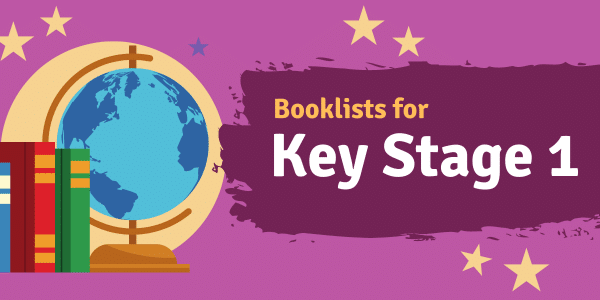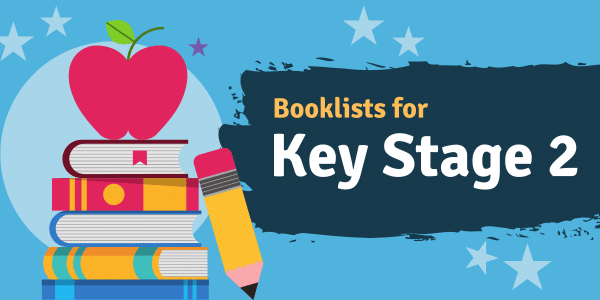BooksforTopics Reading for Pleasure Recommendations
We are delighted to host a Q&A with author Christopher Edge, whose new book The Longest Night of Charlie Noon is available now.
Read on for a review of The Longest Night of Charlie Noon followed by an exclusive Q&A in which we chat to Christopher all about the inspiration behind the story and his experience of learning to love science as an adult after getting low grades in the subject at school.
Image credit: Chris Close
Book Title: The Longest Night of Charlie Noon (available here)
Author: Christopher Edge
Publisher: Nosy Crow
Publication Date: June 2019
Most Suitable For: Years 5-6
Review
Atmospheric, intelligent and thought-provoking, this is the kind of story that loves to surprise you every time you feel sure you have a handle on it. At less than 200 pages, it is a quick but intriguing read in a similar format to Edge’s other recent science-themed books like The Infinite Lives of Maisie Day and The Jamie Drake Equation.
The initial premise of the plot is a basic one; three children get lost in the woods and desperately try to help each other to find their way home before the legendary Old Crony – who they say eats children – makes an appearance.
Tapping into the natural world around them and putting their code-cracking know how to good use, the children find clues in the rhythm of birdsong and shapes of the sticks on the floor. As the story unfolds, so do a series of surprises and layers of philosophical depth as metaphysics are questioned and explored in a child-friendly manner.
Suspense builds with every page and the usual rules of time seem to become increasingly distorted as the story progresses. True to form, Christopher Edge weaves science and philosophy into a gripping child-centred story that keeps the reader guessing and puzzling until the very end.
The Longest Night of Charlie Noon is highly recommendable to KS2 readers who like their stories served with plenty of intrigue, puzzles to solve and a good dose of metaphysics thrown in along the way.
Also features on:
You can order The Longest Night of Charlie Noon online or from your local bookshop or library.
————–
Author Q&A
with Christopher Edge, author of The Longest Night of Charlie Noon
Photo credit: Chris Close
Can you describe the story in 5 words?
It’s a story about now.
Readers familiar with The Infinite Lives of Maisie Day and The Many Worlds of Albie Bright have come to expect complex elements of science, maths or philosophy woven into your stories and explained in a way that children can understand – and this story is no exception! Where did your interest in the sciences begin?
Can I tell you a secret? I was actually rubbish at science at school and got a grade D in my Physics GCSE. I did love science fiction stories from writers like John Christopher, Arthur C. Clarke and John Wyndham, and comics like 2000AD, but the mind-expanding excitement I found in these stories wasn’t matched by the experiments we did in school which were mainly about rolling marbles down slopes or boiling slightly salty water! I’ve become much more interested in science in later life, watching TV programmes from Professor Brian Cox, listening to The Life Scientific with Professor Jim Al-Khalili and reading popular science books by scientists such as Professor Carlo Rovelli about topics such as quantum physics and the nature of time. However, I think readers of The Many Worlds of Albie Bright and The Infinite Lives of Maisie Day might be surprised at first by The Longest Night of Charlie Noon, as the science isn’t immediately obvious on the page, but instead is holding up the scenery…
The blurb of The Longest Night of Charlie Noon describes the story as ‘timeless’. Can you tell us more about why the theme of time is so important in the story?
I could, but I need to be careful of spoilers! What I will say is the story is written in the first-person present tense and one of the reasons for this is this is how we live our lives – forever in the present, but with these moments that we live quickly slipping into memory as we move through time, one second at a time, just like the lines of a story as we turn the pages until we reach the end. The Longest Night of Charlie Noon is a story that grew out of the somewhat troubled times we’re living in now, and explores how we can sometimes find echoes of the past in present times, but also, more importantly, how we shape the future with the actions we take now. We’re all time travellers, travelling into the future one moment at a time as we live our lives, and The Longest Night of Charlie Noon explores the power this gives us to change the world.
One of my favourite aspects of the story was the many twists and surprises along the way, exposing my own preconceptions and assumptions as a reader. When writing, how do you find a good balance between laying down a strong plot line and keeping your reader on their toes until the end?
I don’t think there’s a balance to be struck here, for me there’s just a story to tell and when I’m writing a book I’m just trying to find the very best way of telling it. As a writer I think you need to keep your readers turning the pages, so the twists and surprises in the story might be one of the things that help with this, but these twists are there because they’re helping me to tell the story I want to tell. I think surprise is a key element of a strong plot – if you know what’s going to happen next, what’s your motivation for reading on? Many readers, especially young readers, also re-read their favourite books and I think it’s important that stories offer these readers real depth, so they can find new things or see scenes in a new light when reading the story a second or third time, and I hope this is something that The Longest Night of Charlie Noon does. At its heart it’s a mystery, but all the clues you need to solve it are there on the page…
I also enjoyed the way in which you included puzzles and code-cracking into the story. What is your favourite kind of puzzle to solve?
I like having a crack at a crossword every now and then as my brain works best with words. It’s one of the reasons I like Twitter, but am rubbish at Instagram! As part of the research for the book, I read lots about codes and code-breaking and actually picked up one of those fiendishly-difficult GCHQ puzzle books, but I wasn’t very good at cracking the puzzles inside this! One of my favourite codes is Morse code as I love the simplicity of this. I think it evokes childhood memories of reading adventure stories by Enid Blyton where the smugglers would always announce their villainous presence to the Famous Five or Secret Seven through the Morse code flashing of their torches.
In your stories, science and storytelling both come across as important in the way we humans understand the world around us. Do you think there is a link between the two and do you see either as more important?
I don’t think either is more important than the other – they’re both vital as, as you say, they’re both ways in which we try to make sense of the world, with all its wonder and possibilities as well as its inevitable pain. I think science and stories approach the same questions from different angles and in my books I’ve tried to use scientific ideas to explore the human condition and tell stories about love, family, friendship and bravery.
Those who follow you on Twitter may have enjoyed hearing about the soundtracks you compile for each of your books during the writing process. Is there one for The Longest Night of Charlie Noon and if so can you tell us a few of the songs?
There is a soundtrack to The Longest Night of Charlie Noon and you can find the link to this here: https://open.spotify.com/user/ce1/playlist/2MMYrHHebINbiMOEWZeyhP?si=1tz0O2y7RBmX8_HwkhZXcw Each chapter has its own track, so track one equals chapter one and so on. It starts with the song ‘Wild Wood’ by Paul Weller whose lyric says, ‘we’re going to find our way out of this wild, wild wood’ and that’s the challenge that Charlie, Dizzy and Johnny face. And the final song in the soundtrack is a wonderful track by Guillemots called ‘Up On The Ride’ which for me captures the feeling I’d like readers to take away from the novel as they turn the final pages.
The Longest Night of Charlie Noon by Christopher Edge is published by Nosy Crow on 6th June.
For more from Christopher, follow @edgechristopher on Twitter or visit https://www.christopheredge.co.uk.
—————–
You can order The Longest Night of Charlie Noon online or from your local bookshop or library.
Many thanks to Christopher for answering my questions and to the publisher for sending me a review copy of the book.
Check out the other stops on the blog tour, too!













